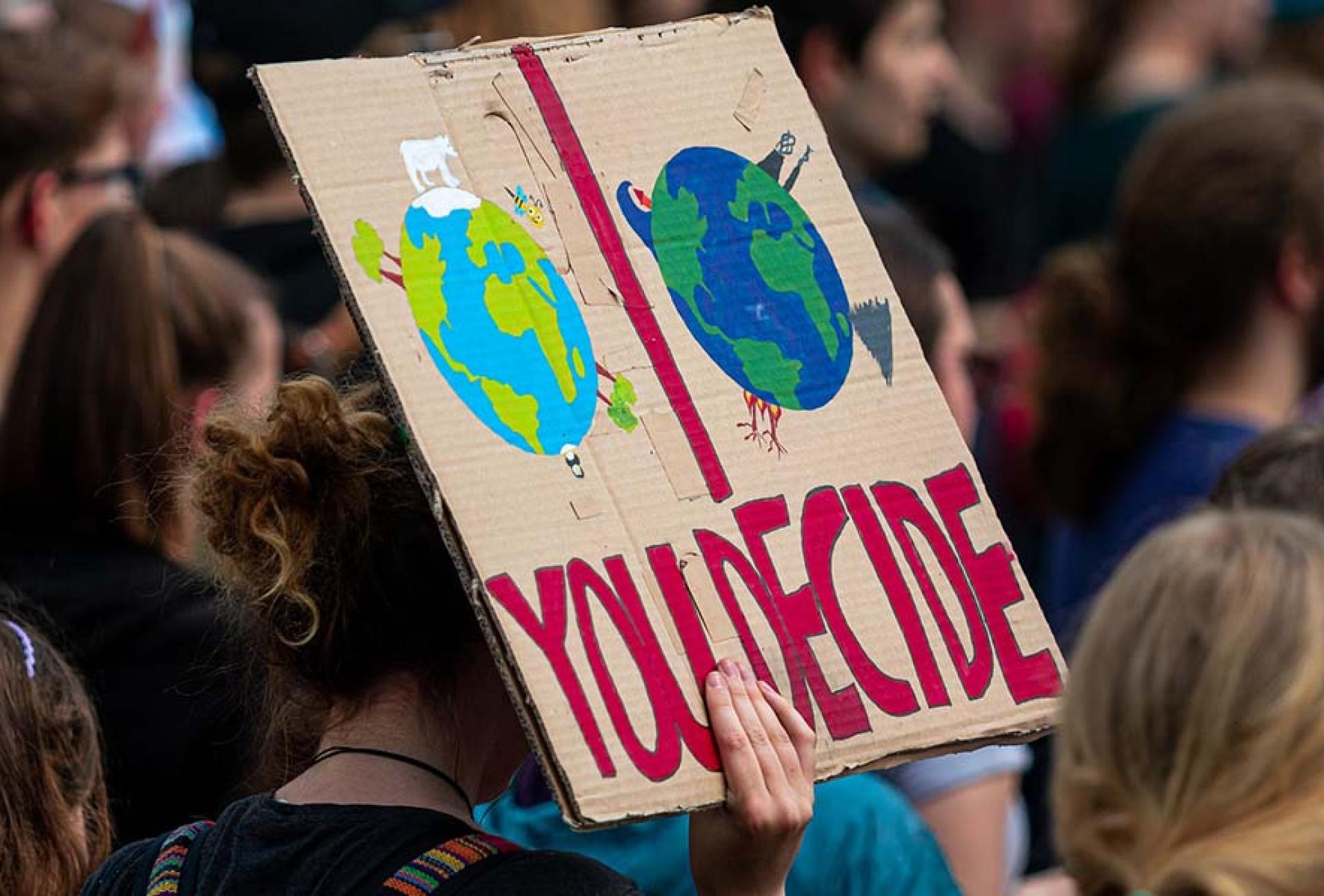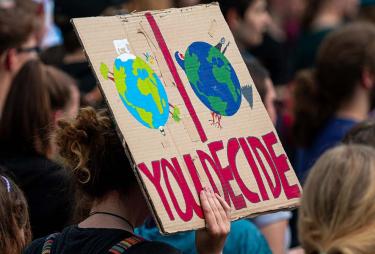I want to see more happen between climate crisis and religion


At the time of writing, it is still unclear how we will remember Cop26 in Glasgow. The meeting is in full swing as I write this. What we do know is that we will have heard a lot of big words. We know that some countries will desperately try to get binding promises of action. Other negotiators are torn between what they know they should promise, and what they think their constituents will let them do.
There is popular support
We also know that we will have seen a movement of committed people trying to show that there is popular democratic support for courageous climate commitments. That there are people who are prepared to vote for the politician who promises and does what is needed. And we know that quite a large part of the popular movement has taken its energy and endurance in a perhaps unexpected place; in her faith in God.
Religion has lent its language
The link between climate engagement and spirituality should be a talking point in society. Religion has long lent its language to climate change: Guilt, shame, hope and transition/conversion are words that are most used in climate contexts nowadays, but that have a theological touch. And we have already stated many times that it is an existential crisis that requires both technical, spiritual, and moral insights.
But I would like to promote a little less philosophizing or theologising and more workshop, at the meeting point between climate crisis and religion. I would like to see religious leaders at the negotiating tables, not just as embellishment in the pulpits, but as representatives of ordinary people.
We can use our religious literacy
We need to be really good at using our religious literacy when engaging people in transition, climate adaptation and advocacy. I see an important and exciting work for SMC Faith in Development when it comes to finding out and writing about whether religious actors are an asset or an obstacle to good climate aid. The climate issue will perhaps become the issue where our religious literacy, our particular competence in navigating religious landscapes, will be a crucial factor in effective aid. I believe that the main obstacles and the greatest assets for effective work on climate change are with religious actors. There may not be another issue where it is so clear that there is theology that serves life and there is theology that betrays life. We have just started to examine these contexts and there is a lot of exciting and important work ahead of us.
Read more
Read about our investment in the environment and climate 2022-2026
Read our new guidelines for the environment and climate
Photo: Dominic Wunderlich from Pixabay
